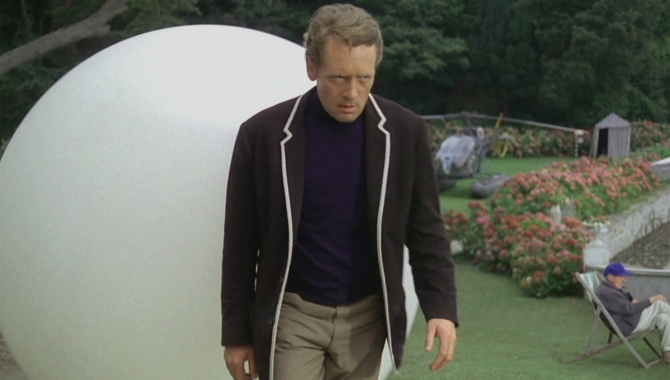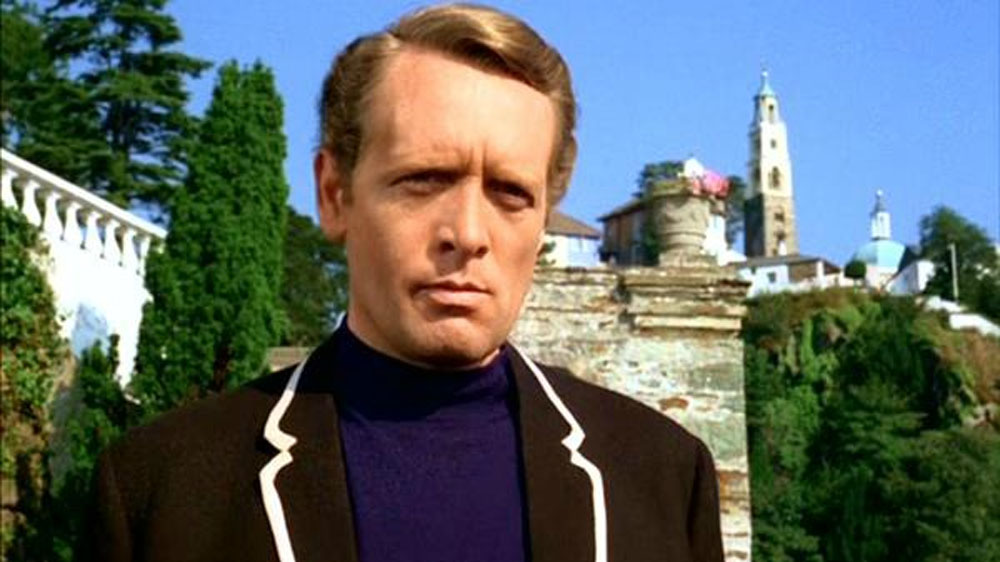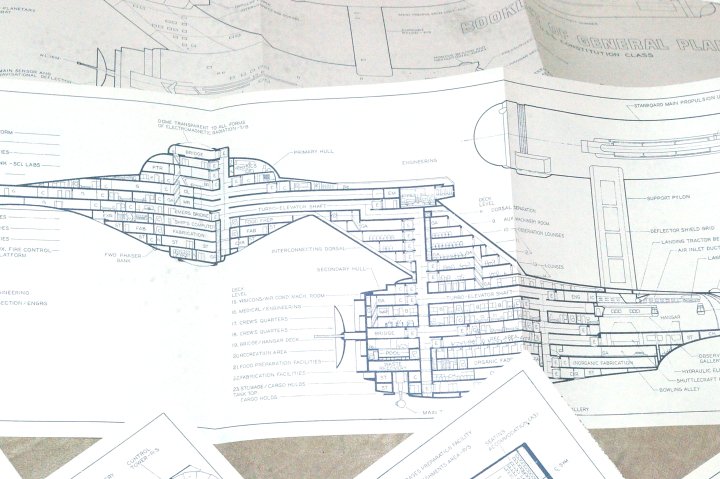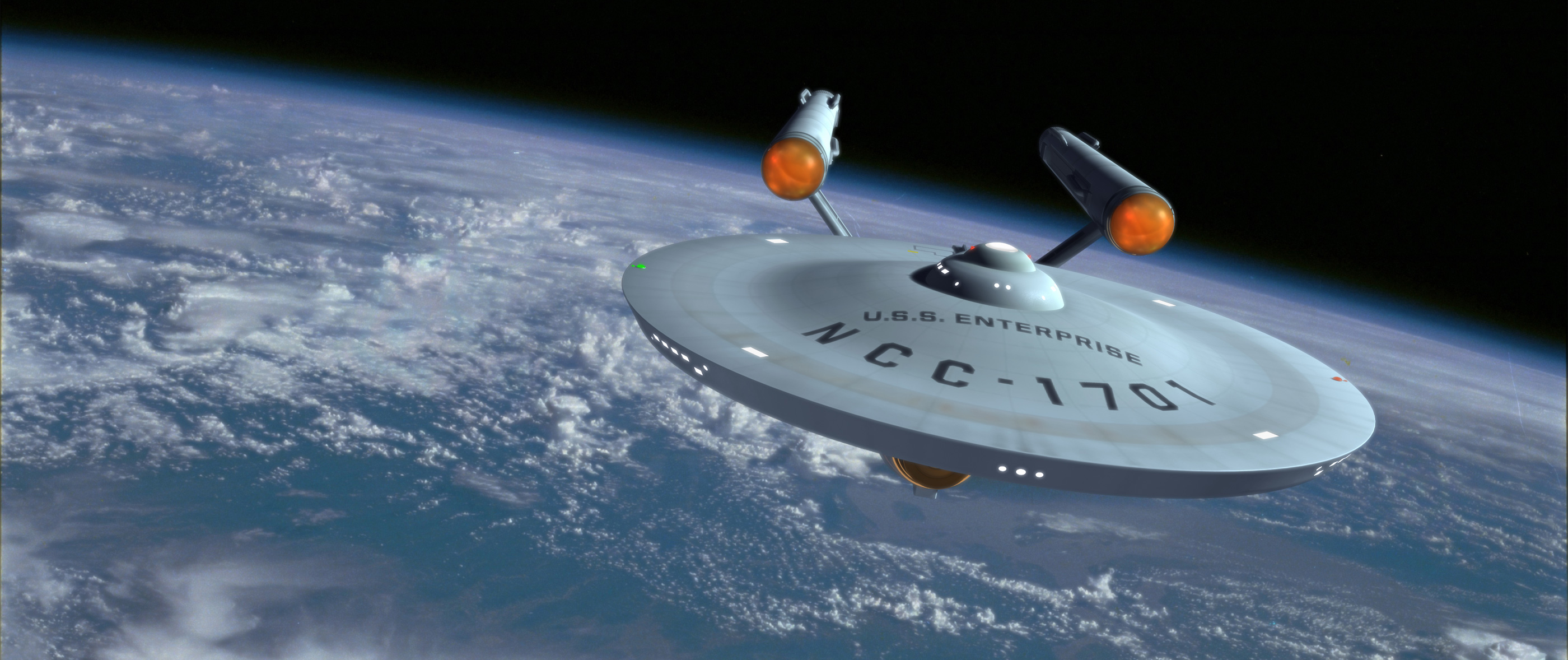Future Fictions: Anthony Burgess and Science Fiction on TV
-
Burgess Foundation
- 7th December 2018
-
category
- Blog Posts

From 1963 to 1968 Anthony Burgess was an occasional television critic for the Listener. The majority of his published reviews were of documentaries, but towards the end of his tenure he also reviewed some television drama, including The Prisoner, the classic series which blends the tropes of James Bond secret agents with those of science fiction.
Patrick McGoohan plays Number 6, a retired spy who finds himself trapped in a mysterious prison village run by advanced machines for an unknown but sinister purpose. Burgess obviously enjoyed this concept, and he claimed in one of his articles that he was ‘thoroughly hooked’ on the series.
Burgess connected the apparent science fiction elements of The Prisoner with what were (to him) more familiar literary reference points. He wrote: ‘it is Orwellianism transferred to the world of the commercial, in which machines work beautifully, everybody is on a kind of holiday and wears a blazer and a redcoat number, the daily flavour of the ice cream is announced on the morning radio, bands play, and the interrogators are as jolly as the commercial priests of the washing-machine or the wrapped cheddar.’

Despite his general enthusiasm for The Prisoner, Burgess felt betrayed by the final episode’s impressionistic style of storytelling. He described his feelings of disappointment: ‘A good deal of the delight I felt when The Prisoner started derived from my confidence that a meaning would eventually emerge, and this meaning would be a kind of image of a single controlling imagination […] We all had a right, those of us who had hardly missed an installment, to a final resolution which should satisfy on all levels. What we got was appalling.’ He was not alone in this opinion, and the series is widely regarded as a flawed masterpiece which began promisingly but ended badly.
There is further evidence that Burgess took an interest in TV science fiction. The book collection at the Burgess Foundation contains two volumes relating to the original 1960s version of Star Trek. Burgess owned a copy of The Star Fleet Technical Manual (1975) and Star Trek Blueprints (1976), both of which were written by Franz Joseph.

The circumstances in which Burgess acquired these books are unclear, but the publication dates suggest that he may have bought them when he was commissioned to write a film script based on When Worlds Collide. Some of this material was subsequently used for the novel Puma, written in 1976 and published for the first time in 2018 as part of the Irwell Edition of the Works of Anthony Burgess. In the novel, a massive spaceship is described in some detail, possibly inspired by the intricate technological specifications of the Star Trek book. Burgess includes this description:

‘Frame admired the three-layered hospital, the artificial heavens, the incredible foodfields, the ample bedroom area which, when the population started to grow, would still be ample. He admired the automated foremator, which would fabricate you a garment in one second after the pressing of a size-button.’ Some of these details, such as screens, communication devices and other technological essentials, might have been gleaned from the blueprints of the USS Enterprise in Burgess’s collection.
Puma would later be used to make up the triple narrative of The End of the World News (1982), the structure of which is inspired by the technology of television, as described by Burgess in You’ve Had Your Time (1990): ‘The television zapper has trained us to take in quasi-simultaneously a number of diverse programmes: why not apply this zapping technique to prose fiction?’
It seems likely that Burgess’s engagement with television, and science fiction serials in particular, allowed him to experiment with both genre and form. Although he did not describe himself as a science-fiction author, the development of his writing owes something to speculative stories that he had seen on television.
The ‘Future Fictions’ exhibition is on at the Burgess Foundation every weekday until January 2019 (10am to 3pm, except during holiday closure period).


